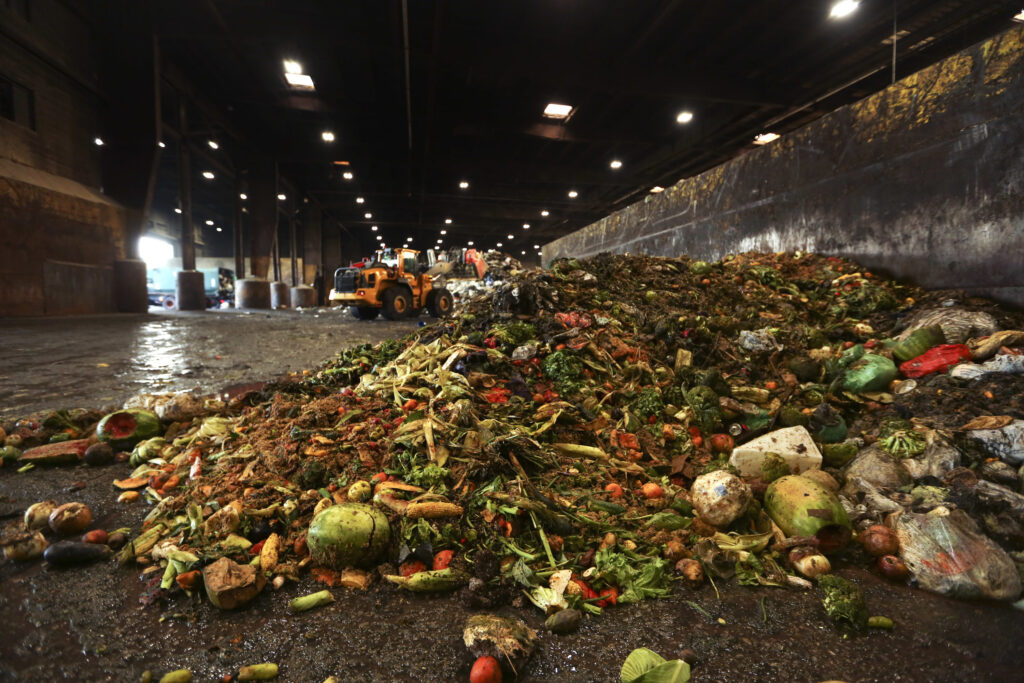Food waste and recycling

Central as well as local governments, third sector and retailers should even more influence and support consumer behaviours to tackle food waste in the country.
A new report says that ‘it is of concern’ that the country continues to waste food on such a large scale, and efforts need to apply across food supply chains from farm to fork to cut waste and generate economic, social and environmental benefits.
100 million tonnes of food are wasted each year, of which sixty million tonnes is avoidable.
Food wastage can occur at any stage of the food chain from farm to fork. Half the food waste occurs in the home, with the average household throwing away the equivalent of six meals every week at a cost of S150 – $250 a year.
In total, $65 billion of food bought by consumers is wasted each year. Some 22 per cent of the edible fresh produce bought by householders is not eaten. Retail and distribution operations produce only 3 per cent of the food waste (4 million tonnes annually) with manufacturing generating some 27 per cent (4 million tonnes a year).
Programmes have driven reductions of 21 per cent in avoidable household food waste since 2017. However, there is a need to decrease levels further, not least to meet targets of reducing food waste by 30 per cent by 2025 (compared to 2007).
Since the inquiry finished taking evidence, the Commission has published a work programme for 2025 under which the circular economy proposals which covered food waste have been withdrawn, pending revised proposals to be produced in 2021.
As well as working alongside a number of top food retailers, there have been plenty of stories of supermarkets taking positive action when it comes to tackling the food waste issue.
North East Lincolnshire Council have been asking residents in their area whether they want the option to buy their Garden Waste Bin.
An Austin local recycling initiative
Austin Residents will have to pay $20 to keep their garden waste bins otherwise they will have to dispose of their waste themselves.
Possibilities of fly tipping in the area could happen as a result of this new change. Government budgets have been blamed for the new charges claimed the former labour leader of Texas.
Residents were given a month to apply after letters were sent out to households. An interesting alternative was that they have charged their households for the last 12 months with no detrimental effects on recycling.
Details for residents who don’t wish to purchase their bins are on the council’s website. It now comes down to two options for the residents, pay for your bin to have your garden waste taken away or remove it yourself at the local recycle centre.
Texas is determined to tackle the growing problem of global food waste.
Whether it’s an anaerobic digestion partnership or a food company sending fresh produce to food banks before it becomes unusable, there seems to be no limit to the imagination of some retailers when it comes to handling food that can no longer be sold.
Which is why it’s no surprise that a recent report by the Waste & Resources Action Programme (WRAP) found that food waste from supermarkets and their depots only contributes 1.3% of the total amount of wasted food.
Data collected by the Retail Consortium and compiled into a report by WRAP showed the benefits of proper waste management by retailers and also how it contributes to the waste economy as a whole.
Of the 115 million tonnes of food thrown away every year, 50% is generated in homes and collected by local authorities, compared to 3,200,000 tonnes (1.3 per cent) from the retail sector.
Austin waste management also estimated in the report that in the five years between 2015 and 2020 that food and drink waste by grocery retailers dropped by as much as 10%.
“Our members are pleased to introduce new levels of transparency into the supply chain and today’s figures tell a positive story about the vast efforts grocery retailers have made to reduce their food waste to only 1.3 per cent of the total,” said Andrew Opie, BRC’s director of food and sustainability.
“At the same time we all need to continue to focus on where we can make the biggest reductions in food waste and that is in the supply chain and the home. We have a huge contribution to make and will continue our work with suppliers and consumers to build on the progress we have already made.”
A new food recycling machine billed as a ‘mechanical stomach’ could be the key to turning the excess of food waste into little more than water at a staggering rate, as the first of it’s kind in the USA goes online in Austin.
